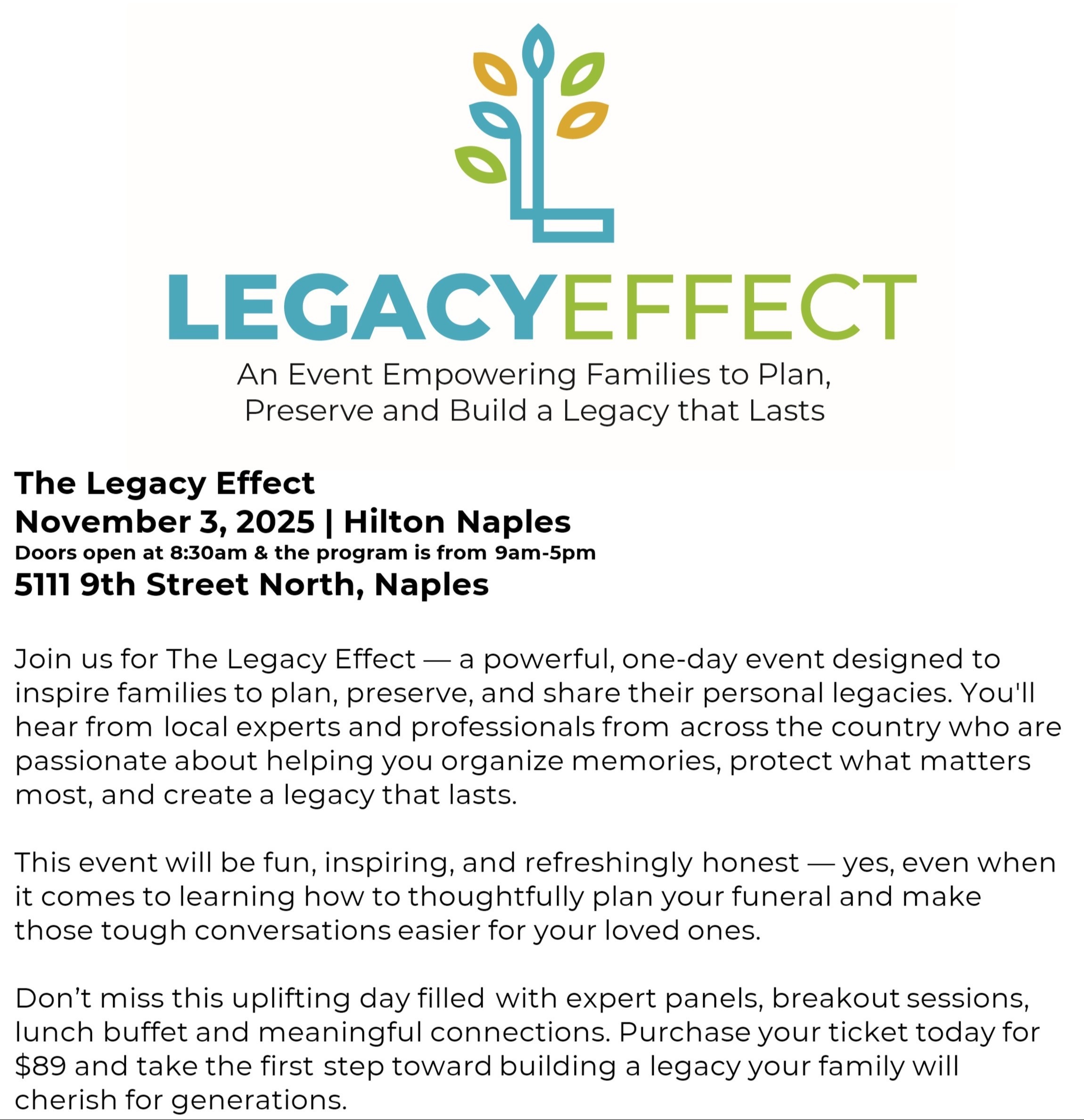Most families don’t talk about money until it’s too late—
until a spouse is gone,
until a parent’s health fails,
until beneficiaries are left scrambling, confused, and resentful.
Silence has a cost. And it is paid by the people you love most.
Your financial affairs are more than numbers on a page. They are instructions, responsibilities, and legacies that will either empower—or burden—your family when you’re not there to explain. Without organization and clear communication, even the most successful life’s work can collapse into chaos. Families fight. Assets disappear. Dreams are lost in probate and paperwork.
But it doesn’t have to be that way.
Imagine instead:
- Your children know exactly where to find important documents.
- Your spouse has clarity about accounts, insurance, and investments.
- Your beneficiaries understand your wishes—before they face difficult decisions.
- Your legacy carries forward as a gift, not a source of pain.
This is the promise of financial clarity: peace in the present and protection for the future. But it begins with you—today, not someday, not “after things calm down.”
Because when the moment comes, it will always feel too soon.
Organizing your financial life is not about money—it is about love, responsibility, and respect for the people who will carry on after you. The question is not if your family will face the weight of your financial story, the question is whether that story will be one of confusion and conflict—or clarity and care.
The Obstacles Families Face
Even the strongest families encounter barriers when it comes to planning and communication. Maybe you’ve wondered:
- How do I approach my mom or dad about their finances?
- What if their health is failing—what plans, if any, do they have for care?
- We want to talk with our children about our wishes, but where do we begin?
- Do we have to share every detail of our net worth?
- Have our children created their own estate and health care plans?
These are not uncommon questions—and they highlight the real challenges families face.
Estate planning is not just about having documents in place—it’s about ensuring the right people can act on your behalf with confidence and clarity. Some of the most common barriers include:
- What to share and what to keep private. Many parents wrestle with striking the right balance.
- Geography. Children may live across the country with no access to critical files.
- Disorganization. Families often keep records “in a way that makes sense to us” but leaves others completely lost.
- Incomplete planning. The estate plan may exist, but key puzzle pieces are missing—beneficiaries aren’t updated, titling is incorrect, or original documents are hard to locate.
The result? Stress, confusion, and decisions made in the dark.
Where to Begin
Ask yourself: If my neighbor suddenly had to step in and make financial or health care decisions for me, what would they need to know?
Here’s a starting point:
- Comprehensive asset list. Include what you own, how it is titled, which institution it’s held with, and current values. Many times, assets are not titled to match your estate wishes.
- Beneficiary designations. Review all life insurance, annuities, IRAs, and transfer/pay-on-death accounts. Outdated beneficiaries are one of the most common—and preventable—mistakes.
- Up-to-date documents. Wills, trusts, and health care directives should be reviewed regularly. Ensure your loved ones know where originals are stored.
- Introduce your team. Provide names and contact information for your financial advisor, CPA, insurance professional, and estate attorney. Consider hosting a family meeting (virtual or in-person) so your beneficiaries know who these professionals are.
- Leverage technology. Organize and store your information in a way that is both secure and accessible. With family members spread across the country, digital access to current records can prevent weeks—or months—of unnecessary stress.
The Legacy You Leave
Your legacy is not only what you pass on—it is the condition in which you leave it. Families that plan, communicate, and stay organized spare their loved ones confusion, conflict, and unnecessary grief.
The question isn’t whether your family will face the weight of your estate—it’s whether you’ll leave them with clarity and confidence, or with unanswered questions and chaos.
The time to act is now. Your clarity today is your family’s peace tomorrow.
If you reside in SW Florida and you’d like to explore more ways to plan, preserve, and share your legacy, we invite you to join us at The Legacy Effect conference this November. Call the Naples office if you would like to attend.



